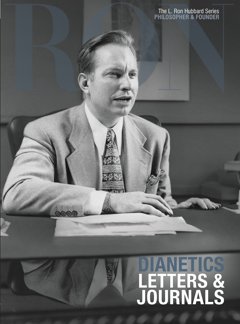9 Simple Techniques For Dianetics
9 Simple Techniques For Dianetics
Blog Article
Dianetics for Beginners
Table of Contents9 Simple Techniques For Dianetics4 Simple Techniques For DianeticsFacts About Dianetics RevealedNot known Incorrect Statements About Dianetics
I couldn't ever not intend to receive anything that enters your mind for you- if it was or else, I would not be sitting below with you, doing this. I not only might never ever have an issue, or not intend to listen to something that comes to mind for you, yet I'm totally anxious to understand every concept, every idea, every picture or feeling that emerges or materializes for you- do not ever think or else, and if for one reason or another you do, please simply allow me understand! Occasionally, you may have an idea, and photo, concept or incident turn up that does not seem to respond to the question, or associate with it, but nevertheless, always do tell me concerning it, and as we continue, the importance will certainly emerge for you.This is inherent in the basis of processing, and the subject of this conversation: the standard roles of the therapist and the customer: The fundamental role of the therapist is, in contrast to "basic training", not to manage, which means to implement and/or prevent, but to rather work from the basis of EMPOWERING THE CUSTOMER.

Indicators on Dianetics You Need To Know
John Mcmasters revealed this fundamental truth wonderfully well in among his talks on Power handling, where he describes how he was asked what this "special propensity" was that he had for providing such terrific sessions; he had to consider that for a moment, and spotted that it was what he had not been doing, in addition to what he was doing: he wasn't examining, judging, computer, or actually, producing any kind of ideas, let alone verbal expressions, after giving the command and while waiting on the PC to finish their response to their contentment; he was, just and just, existing with the computer, and completely interested.
The duty of the counselor, demonstrated; that was his "unique propensity". I have actually had my own experience which educated me this well, extremely early in the video game. In 1982, having just recently completed my training and internship on New Period Dianetics, I was running this on a PC, and there was a point in the session where (being a bit wet behind the ears not yet having several hours under my belt as a professional auditor) the computer appeared to be "taking as well long" to express anything verbally after I gave him a command.
This key ended up being one of the most beneficial contribution that John ever before made to the subject of therapy or auditing (Dianetics). In my modest point of view, it is the best payment that anybody has actually ever made to these subjectsthe application is entirely non-judgemental, non-evaluative, and empty of any recommendation, suggestions or opinion.no preconceived schedule for people, or 'levels' that they need to do
In Scientology we prided ourselves on not evaluating for individuals. All that really implied was that the auditor did not Vocally review for the PC in session.
Fascination About Dianetics

Any person who had ever before seen John audit might not help yet observe an one-of-a-kind quality in his bookkeeping."The client's basic role is to be there with the function of moving in the direction of their spiritual objectives, and to openly and fully share and experience whatever manifests for them in addressing the questions and carrying out the directions in the processing.
This is something to procedure as required. Also, people often have prior experience and/or indoctrination in auditing/processing which, in some methods, and to some levels, actually deceives review them into mindsets, ideas and behavior patterns that stop the complete understanding of these duties, and so they will have a tendency to prevent the expressing of what comes to mind, as in the instances offered over - Dianetics. * The initial, and probably leading examples of mis-indoctrination resulting in less than entirely smooth and reliable sessions, can be found in specific aspects of the training routines, or "TR's":"TR's" are usually an individual's very first, or a minimum of early, experience in Scientology, and while I will certainly go on to clarify what I see as the defects in concept and technique, nevertheless, have a tendency to be significantly restorative, done as they are given (Hubbard urges that "TR's are not processing, they are educating", yet factually, they are both processing AND training)
There is no "failing", and no denial of the truth of this being handling. The emphasis, as it needs to be, is on experiencing the various other individual's existence.
The Best Guide To Dianetics

Report this page